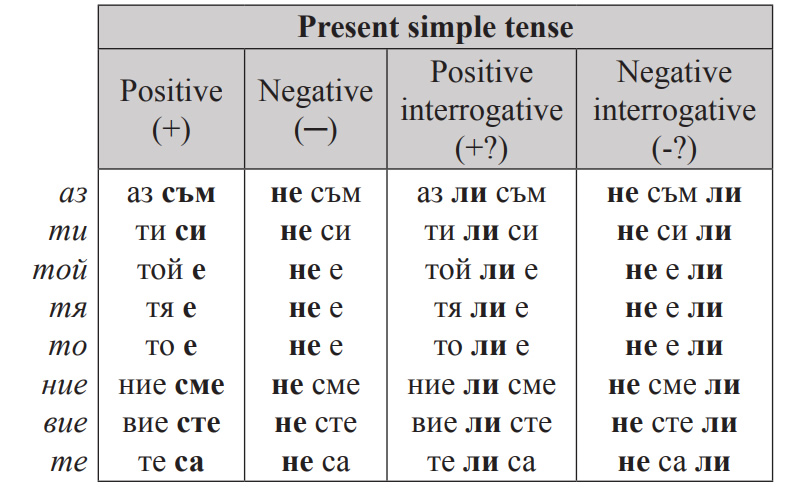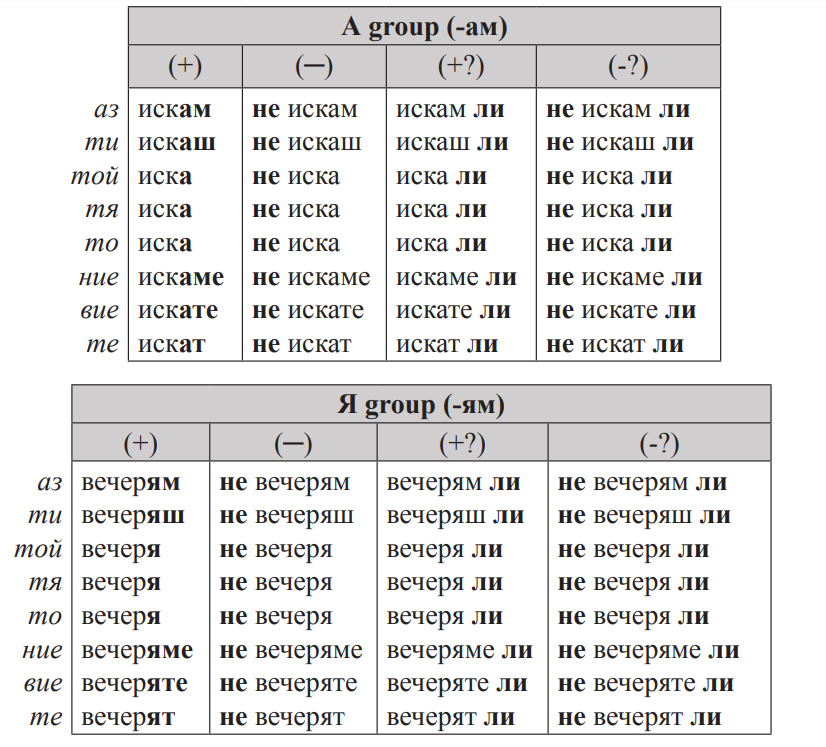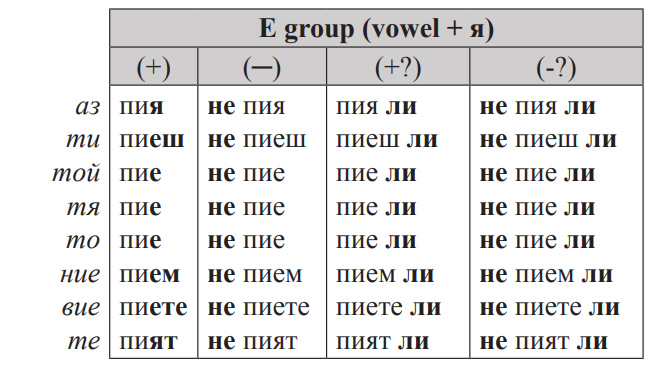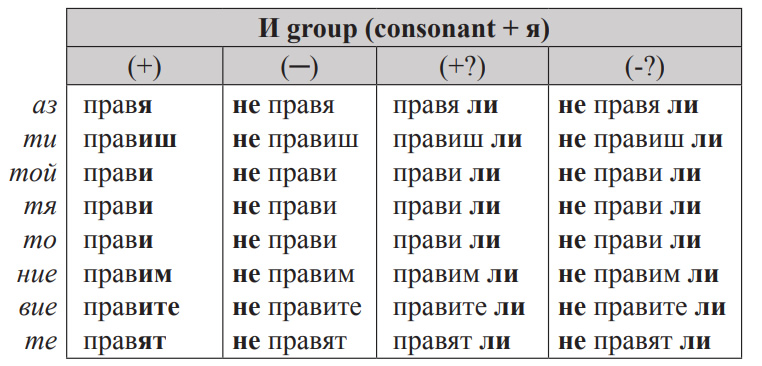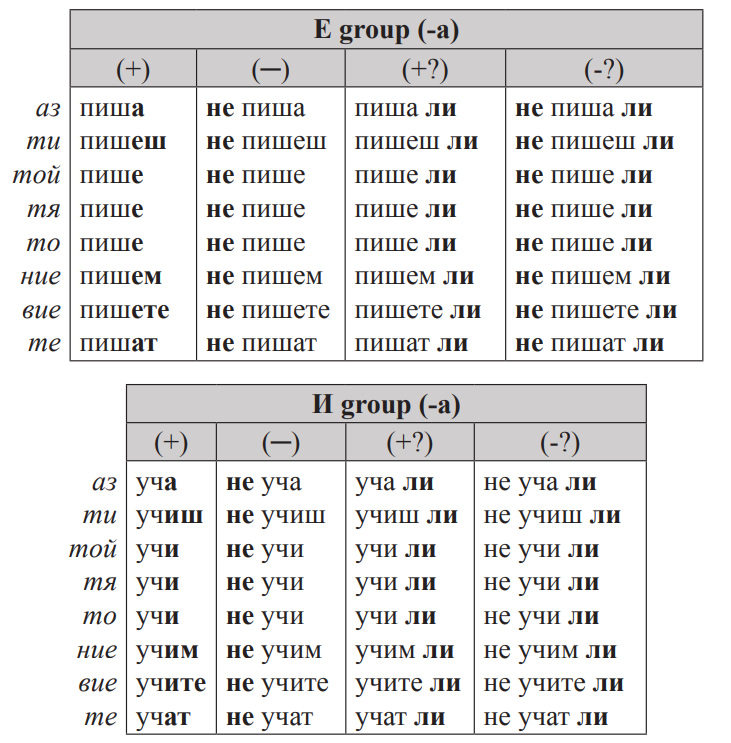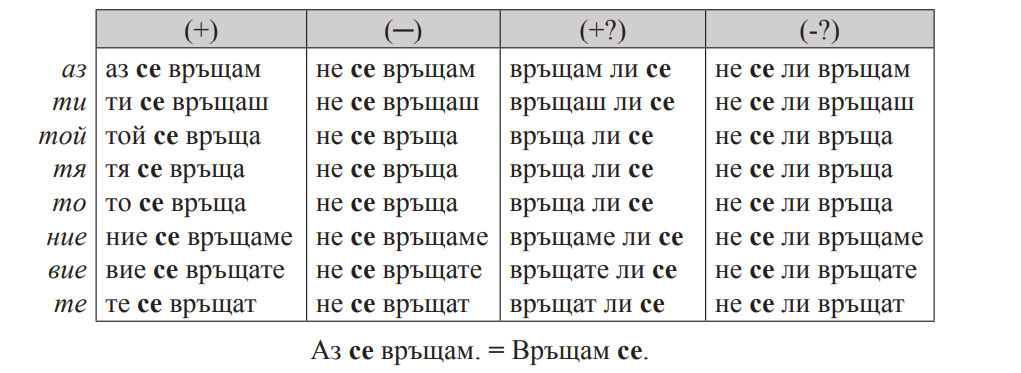Difference between revisions of "Language/Bulgarian/Grammar/PRESENT-SIMPLE-TENSE-–-Сегашно-време"
| Line 2: | Line 2: | ||
{{Bulgarian-flag}} | {{Bulgarian-flag}} | ||
<nowiki>*</nowiki> <small>The name of the tense is Bulgarian is Present Tense but Present Simple Tense is the closest corresponding English tense to it.</small> | <nowiki>*</nowiki> <small>The name of the tense is Bulgarian is Present Tense but Present Simple Tense is the closest corresponding English tense to it.</small> | ||
'''здрасти''', Bulgarian Learners! 😃 | '''здрасти''', Bulgarian Learners! 😃 | ||
Revision as of 12:57, 4 February 2022
* The name of the tense is Bulgarian is Present Tense but Present Simple Tense is the closest corresponding English tense to it.
здрасти, Bulgarian Learners! 😃
➡ In today's lesson you will learn how to use the Present Tense in the Bulgarian language.
Happy learning!
3 persons
Verbs in Bulgarian have three persons – 1st, 2nd, and 3rd – and two numbers – singular and plural.
No infinitive form
Verbs in Bulgarian do not have an infinitive form. Therefore the 1st person singular in present simple tense is used as a basic form of the verb.
Irregular verb "to be"
The present simple tense of the verb “to be” is formed in an irregular way.
3 groups or conjugations of verbs
There are three groups or conjugations of verbs in the Bulgarian language: A/Я group (3rd conjugation), E group (1st conjugation), and И group (2nd conjugation).
Skip the personal pronouns
We often skip the personal pronouns, as the grammatical person and number are clear by the form of the verb.
3rd conjugation
A/Я group (3rd conjugation) – All the verbs from the A/Я group end in -АМ/-ЯМ in 1st person singular.
Some verbs from this group are: вечерям, забравям, закусвам, затварям, искам, казвам, казвам се, купувам, обичам, харесвам, обядвам, отварям, отговарям, отивам, разбирам.
1st conjugation
E group (1st conjugation) – Many of the verbs from the Е group end in a vowel + Я in 1st person singular.
Some verbs from this group are: желая, зная/знам, играя, мечтая, мия (се), мога, пея, пия, пиша, смея се, чета. Exception: ям – аз ям, ти ядеш, той/тя/ то яде, ние ядем, вие ядете, те ядат.
2nd conjugation
И group (2nd conjugation) – Almost all of the verbs from the И group end in a consonant + Я in 1st person singular.
Some verbs from this group are: вървя, говоря, готвя, каня, мисля, моля, мълча, правя, работя, свиря, търся, уча, ходя.
Verbs ending in consonant + A in 1st person singular
Verbs ending in consonant + A in 1st person singular belong either to E group or to И group.
placement of the reflexive pronoun CE
Pay attention to the placement of the reflexive pronoun CE.
When do we use simple tense?
We use present simple tense to talk about:
- a fact
- a habit or repeated action
- an activity happening now
Used with adverbs of frequency
Present simple tense is often used with adverbs of frequency: винаги, обикновено, често, понякога, рядко, никога
Videos
Present Simple Tense - Сегашно просто време
Questions in the Present Tense - Въпроси в сегашно време ...

